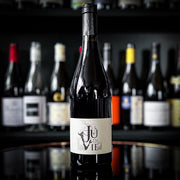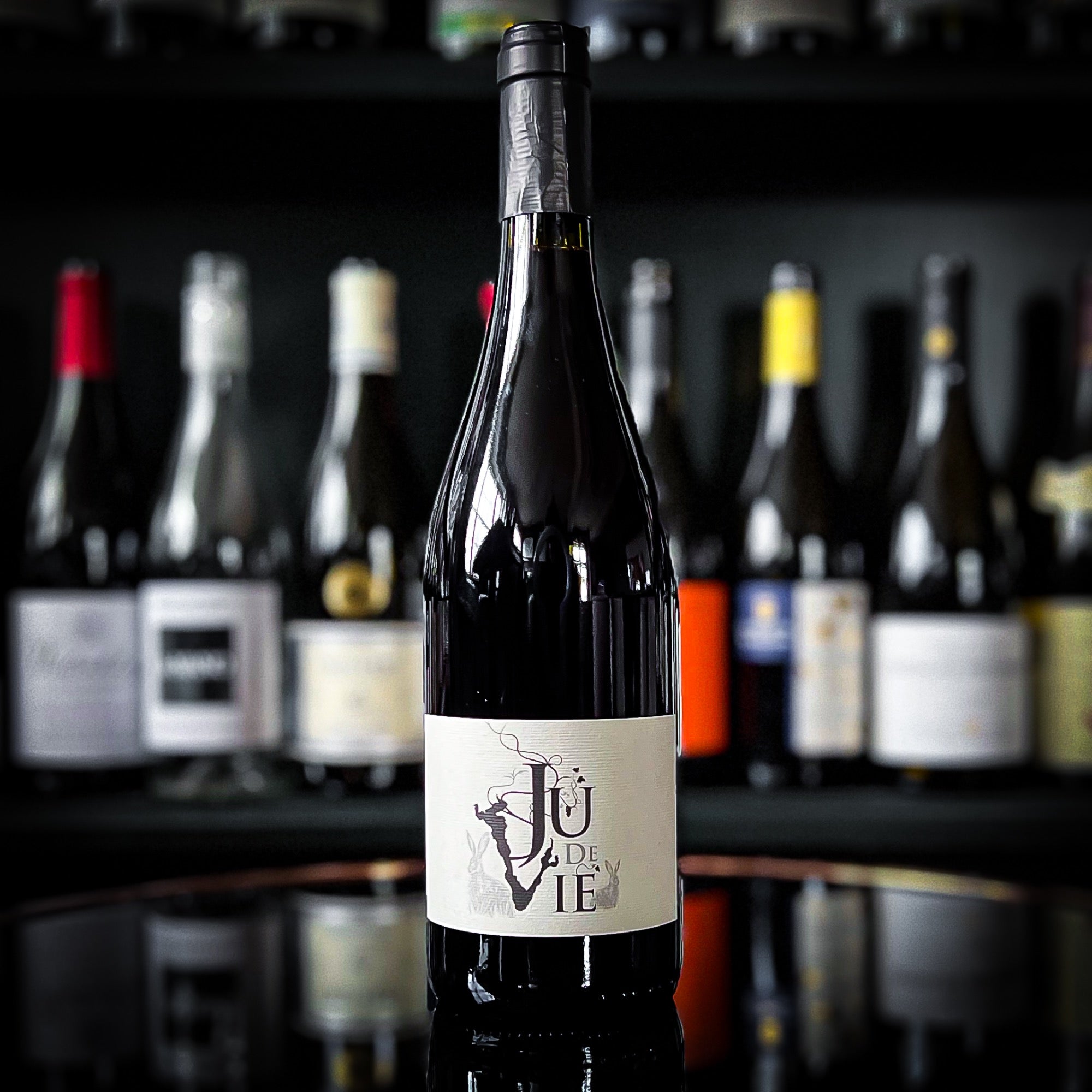Julien Mus Ju de Vie
Julien Mus Ju de Vie
2023
Aged in concrete, this is a wine with a real sense of finesse
Hurry, only 9 items left in stock. Need more? Get in touch
Couldn't load pickup availability
A vibrant French natural red with lush dried-fruit intensity—blueberry and prune—harmonized by earthy, bramble fruit tones. Aged in concrete rather than oak, this is a wine with a real sense of finesse; nice crunchy acidity, mixed with light, smooth tannins give a brilliantly balanced blend.
Whilst coming from the heart of the Rhone Valley, this Ju de Vie from Domaine de la Graveirette's Julien Mus, can only be classified as a Vin de France due to its unusual blend of Merlot, Marselan, Grenache and Mourvèdre. It's lighter, fresher and more mineral than your average Cotes du Rhone, so not being called that certainly plays in its favour.
Julien is still honing his winemaking style, but his wines all have very pure, expressive fruit and have already attracted attention and high scores.
Producer: Julien Mus
Producer: Julien Mus
Region: The Rhône Valley
Region: The Rhône Valley
Grape: Grenache/Garnacha, Merlot, Mourvedre, and Marselan
Grape: Grenache/Garnacha, Merlot, Mourvedre, and Marselan
Grenache/Garnacha
Merlot
Mourvedre
Marselan
Delivery information
UK Mainland
- - England & Wales: Free standard delivery on orders over £150
- - England & Wales: £10.99 standard delivery on orders below £150
- - England & Wales: Saturday delivery is £24.99.
- - Scotland: Standard delivery from £13.99 but this is dependant upon the shipping postcode
- - Scotland: Standard delivery is subsidised on orders over £150
- - Scotland Saturday delivery from £28.99 but this is dependant upon the shipping postcode.
Local delivery
- - We offer free local delivery to GL50, GL51, GL52, GL53 and GL54 on orders over £75.
- - £5.99 on orders below £75.
- - Saturday delivery is £14.99.
UK Non-Mainland (Islands & Highlands)
- - Delivery costs will vary. Please enter your postcode at the checkout to calculate.
- - We are currently unable to deliver to Northern Ireland.
Delivery Times
- - Standard delivery within 5 business days (Monday to Friday)
- - In most cases, if orders are made before 12pm, we will endeavour (with our delivery partner) to deliver the next working day.
Terms & Conditions
- - Tivoli Wines or our delivery partner will notify you by way of email and/or SMS when your goods are to be dispatched to you. The message will contain details of estimated delivery times in addition to any reasons for a delay in the delivery of the Goods purchased by you.
- - If Tivoli Wines receives no communication from you, within 14 days of delivery, regarding any problems with the Goods, you are deemed to have received the Goods in full working order and with no problems.
- - Free delivery qualifies for orders meeting the minimum order value and within the Mainland UK. Non-wine items do not qualify towards the free delivery minimum order value. Should your order change for any reason resulting in the total order value falling below the minimum order value, you may be required to pay an additional fee for delivery.
- - Additional charges may apply to orders outside of mainland UK (e.g. the Scottish Isles, Isle of Wight, Northern Ireland, Scottish Highlands, Channel Islands) or outside the United Kingdom.
- - All goods must be signed for on delivery by an adult aged 18 years or over.
- - If our carrier is unable to deliver your order, it will be returned to us and an additional charge may required for redelivery.
- - Tivoli Wines, nor its chosen carrier, can be held responsible for the security of your order if specific instructions are left for the carrier in your absence or inability to take delivery.
- - Please read our full Terms and Conditions regarding orders and delivery.




